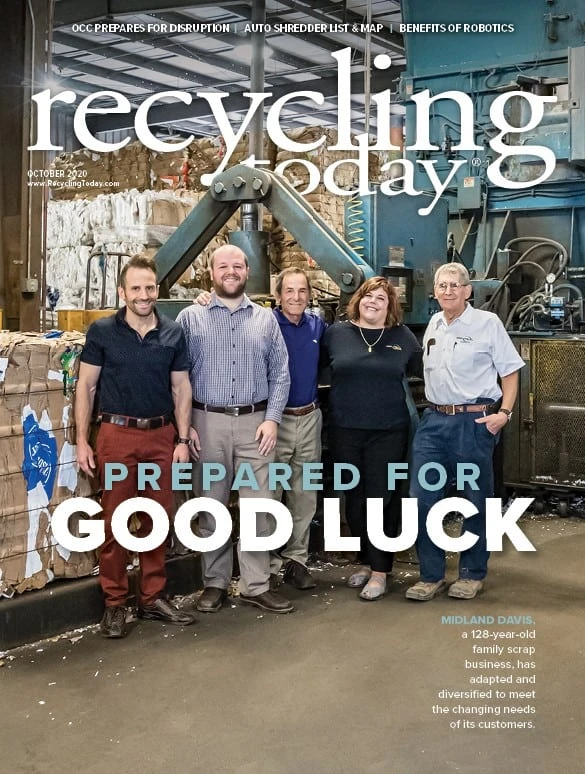China’s scrap import regulations have made domestic markets for recovered plastics more important in recent years, and more capacity is coming online to consume this material, according to a speaker at WasteExpo Together Online in mid-September.
Stephanie Baker of KW Plastics, Troy, Alabama, said that company is expanding its high-density polyethylene (HDPE) and polypropylene (PP) processing capacity.
KW Plastics General Manager Scott Saunders also spoke during the week of Sept. 14 as part of the Institute of Scrap Recycling Industries (ISRI) 2020 Fall Commodity Spotlight Series webinars. He said KW processes a total of approximately 500 million pounds of PP and HDPE annually, which is evenly split between the two polyolefins.
KW is adding two extruders, with plans to add two to three more “if we can get the equipment, which is tight right now,” Baker said. “We want to get ahead of demand growth for next two to three years.”
The company also is adding a new wash line. “Every commodity will have its own dedicated line, and one will be added to increase flexibility,” she explained, saying KW sees the value in having employees and equipment ready to go when demand increases.
“The auto industry shutdown was a big bruise on suppliers such as ourselves.” – Scott Saunders, general manager, KW Plastics
Demand for natural HDPE bales has increased during the pandemic, Baker said, and demand for KW’s natural recycled HDPE (rHDPE) pellets has been strong as well.
However, the automotive sector, a consumer of colored rHDPE, was affected by the pandemic-related halt in manufacturing.
“The auto industry shutdown was a big bruise on suppliers such as ourselves,” Saunders said during the ISRI webinar. He added that as of mid-September, however, KW was shipping “at pretty much normal rates” to customers in the automotive sector. “We expect business as usual through end of year, which is good news for us as HDPE and PP recyclers.”

“Domestic end markets are strong and reliable, I want to assure you,” Baker said. “Diversity and critical mass are key to success.”
Export markets, however, continue to offer challenges.
China Sustainable Plastics Association Executive President Steve Wong says the Environmental Protection Department (EPD) of the Hong Kong Special Administrative Region has updated its plastic scrap import and export control guideline. Wong also owns Hong Kong-based plastics recycling firm Fukutomi Recycling Ltd.
He says the EPD is attempting to comply with the amendments to the Basel Convention set to take effect among signatory nations Jan. 1, 2021. “The EPD of Hong Kong has tightened the controls with the same effective date on plastic [scrap] import/export and transshipment,” Wong writes in his September update email.
Some materials will retain “unrestricted” status in 2021 and will not require an import permit, he says. These materials align with “entry B3011 of Annex IX of the Basel Convention,” meaning they must be “almost free from contamination and other types of wastes.”
However, importing those materials into Hong Kong as of 2021 will require “a notification to the EPD of Hong Kong, with supporting documents,” Wong says.
See http://bit.ly/hong-kong2021 for more details.

Explore the October 2020 Issue
Check out more from this issue and find your next story to read.
Latest from Recycling Today
- Orion ramping up Rocky Mountain Steel rail line
- Proposed bill would provide ‘regulatory clarity’ for chemical recycling
- Alberta Ag-Plastic pilot program continues, expands with renewed funding
- ReMA urges open intra-North American scrap trade
- Axium awarded by regional organization
- Update: China to introduce steel export quotas
- Thyssenkrupp idles capacity in Europe
- Phoenix Technologies closes Ohio rPET facility





